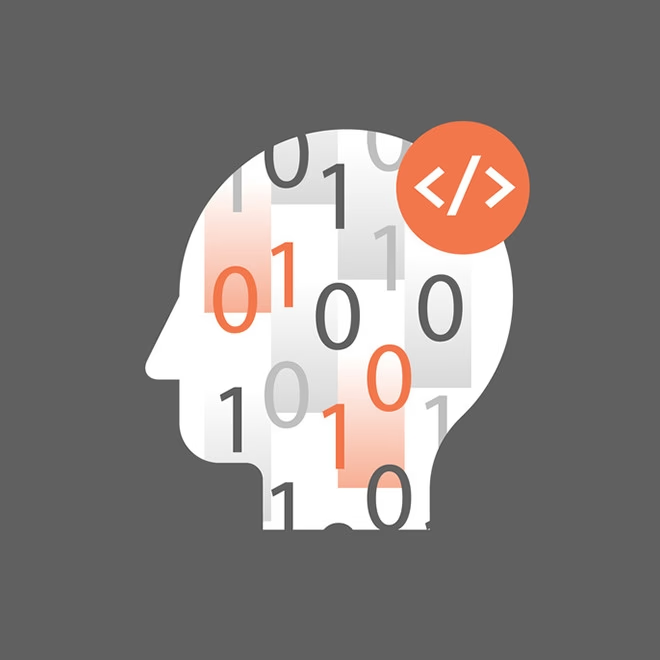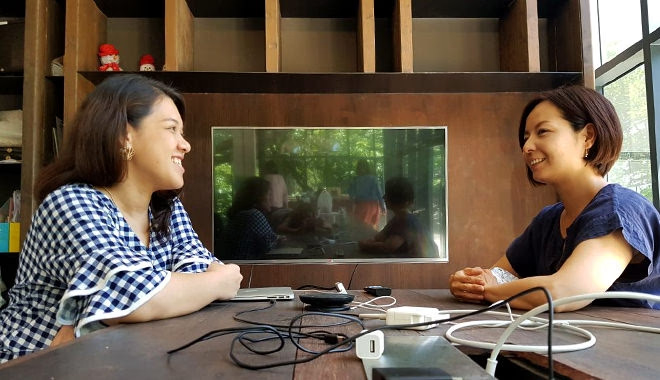Hello! Sawadee-ka! Thank you! Hello! Hello! Hello! I'm Akamine, the Monotai director.
I have been exposed to many foreign languages, but my only hobby that I never lose interest in is learning and exploring languages. I have only studied English and Thai at school, but I am also interested in other languages, such as Korean, which I learned from a TV drama, Khmer, which I spoke with local people, Vietnamese, which I started because I wanted to, and greetings from countries I visit while traveling! So this time, I would like to explore the wonders of language, the characteristics of languages that differ from country to country, and languages learned from professionals.
The Wonders of Language
Currently, I am exposed to three languages in my life.
English : Interacting with a Thai coder, communicating with flatmates at home
Thai : Daily conversation with Thai coders, communication with shops and landlords, Thai language school
Japanese : Interacting with customers, communicating with Japanese directors, family and friends

Monotai members go on a One Day Trip. Just like during work, Thai, Japanese and English are used interchangeably.
In terms of percentage, it's probably about 30% English, 30% Thai, and 40% Japanese.
There isn't any particular language that stands out. However, when you have to speak with someone other than Japanese, what language do you think comes to mind first?
For some reason, it's "Thai". In terms of speaking time, Japanese is the language I speak the most, and English is by far the second language I use well. So why? This has always been a mystery to me. This is merely an answer I arrived at through speculation, but I think that the sounds I hear most often in my daily life are subconsciously stored and come out in order from the most recent memories. This is the first time in my life that I have come into contact with a new realm of a third language, so I consciously know that I cannot switch in my mind instantly, but even so, I am honestly surprised at the strangeness of Thai being the language that comes to mind in an instant.
Does changing language affect personality?
I feel like I have a slightly different personality when I speak Japanese, English, or Thai.
Japanese is serious and earnest, English is high-spirited and straightforward, Thai is calm and composed. I think these are common images, but what's strange is that I feel like the brain I use at each moment is different. My way of thinking changes, so even if I would normally answer A, when I speak in English I might answer B, and the results may be different. Various studies have said that " thinking also tends to depend on the language I'm using at the time ," and I wonder if it's just my imagination that I feel like I'm living a more calm life here than when I'm in Japan.
The language of programming

The reason I was interested in the front-end world is because HTML / CSS / JS were languages. I still feel that way, and I think that HTML goes through the same process as the process of learning to speak English. Language is a communication tool for me, but HTML / CSS / JS are also communication tools for me. In English, when you arrange words according to certain rules called grammar, they eventually become sentences, and that becomes a language that the other person can understand. Imagine it as if you put basic words into HTML, and then CSS plays the role of adjectives and adverbs, and JS plays the role of verbs. Then the result, a website, becomes visible. Communication is complete.
I remember being impressed by the first person to call programming a language. Moreover, programming languages are universal languages, so don't you think it's wonderful that we can communicate using the same language whether we're from Cameroon or Uzbekistan?
The Fun of English Spoken in Thailand
Now, here's a typical Thai thing related to English.
In Thailand, there are more opportunities to come into contact with English in daily life than in Japan, and you can hear English in places where many people pass by, such as restaurants and taxis. However, when I came to Thailand, my impression was that "English is not understood at all!" I had assumed that English would be understood normally in the multicultural city of Bangkok, but when I spoke English at a convenience store or in a taxi, I was met with the answer "Ahn?" and could not understand what the other person was saying. However, there is a good reason for this, and in fact, there are far more Thai people who can speak English than in Japan. So why was my English not understood and could not be understood? The reason was in the pronunciation and the placement of the accent.
1. The accent is on the last syllable. *Depends on the word.
(Example) interesting
→[Pronunciation] íntərəstiŋ The accent should be on "i" →[Syllables] in・ter・est・ing It is divided into four syllables
It is usually pronounced "in" interesting, but in Thailand it is pronounced interes "ting" (the last "gu" is dropped).
2. There are various changes in the sound at the end of a syllable. ※「」 indicates the position of intonation.
- Pronounce the L sound as an N
→ Apple sounds like "up" - Pronounce the S sound as a T
→ Office sounds like "o" - Pronounce the F sound as P
→ Off sounds like "o"op - When consecutive consonants come at the end of a word, they are not pronounced
→ Send / Sends / Sent sounds like "se" - Suppressing consonants after diphthongs (oi, au, ai)
→ Oil sounds like "o"
Easy-to-understand YouTube videos
There's no end to the details, but roughly speaking, it was very difficult for me to get used to Thai English, which has characteristics such as "raising the end of words" and "there are sounds that disappear," but now I can predict and understand it, and I actually speak Thai English. Now I'm so used to Thai English that I can't speak it with the correct pronunciation or grammar (word order). (This is annoying!)
If you actually listen to it, you'll understand that the English that Thai people speak sounds very soft and gentle. I now like the soft way Thai people speak, which is unique to their country and tone of voice.
Also, the English my flatmates speak is French and Korean, and their English is unique and very interesting.
Inside the interpreter's mind

We have mentioned issues such as switching between languages and the characteristics of each country's language, but the professional occupations that can easily overcome these barriers are "interpretation" and "translation."
I have always felt that there is a big difference between being able to translate normally and interpreting/translating, but I have not been able to express it well. This time, I spoke with Fon, a veteran interpreter at Monotai, and I was able to find out what that difference is.
Akamine: There's something I've been wondering about for a while. I use English for everyday conversations and simple exchanges at work, but if someone asked me to interpret right now, I wouldn't be able to do it. But the reason I can't do it is something other than just my language acquisition ability. I feel like interpreters have a special skill.
Fon
I don't know if it's a skill, but I couldn't do it right away either. At first, I didn't know anything about the Web. In the beginning, Mr. Kawamura and the others took their time to explain things carefully, and the coders also taught me a lot of things. If I didn't understand something even a little, I would check the meaning each time, or I would take notes of the words and later read Web-related articles myself to deepen my understanding.
Akamine : I see. It's hard to imagine that from the current Fon. But I don't think knowing technical terms necessarily makes you an interpreter or translator.
Fon
Of course, that's not all. If you don't understand the work on-site, you won't be able to convey the nuances of what the person wants to say. Sometimes the person speaking starts talking without being able to organize their thoughts, so I try to organize my thoughts in my own words first, whether in Japanese or Thai. That makes it easier to get my point across.
Akamine : Well, I also say what I want to say everyday and don't organize it. I'm sorry. Also, I sometimes get carried away with wanting to explain things and end up talking for a long time...
Fon
Yes, I have to interpret long sentences, so I interpret by memorizing. I don't have to remember everything, but I try to remember only the things that absolutely must be conveyed and make sure I don't forget keywords.
Akamine : So while you're listening to what the other person is saying, you're simultaneously deciding whether or not it's something that should be conveyed.
Fon
Well, of course if it's too long I'll tell them to wait a bit (laughs).
Akamine: Even if that's true, interpreters have to work at a certain speed, right? It's amazing how you can make decisions so quickly!
Fon
To achieve that speed, you need to think in Japanese. You won't be able to keep up if you translate into Thai (your native language). I also think that analytical ability is necessary at that time. You need to analyze what the person is saying.
Akamine analysis?
Fon
It's like analyzing what the person is really trying to say. I can't code at all, but by understanding the logic and flow, I was able to understand what the person was trying to say. Just listening to the conversations that coders have every day is a learning experience. Also, each person has their own speaking habits, so it was difficult for me to understand them.
Akamine
The reason why Fon's words are always easy to understand is because he analyzes them.
And even that person's speaking habits?
Fon
Yes, that's true, but the person's facial expression is also important.
Just hearing that, Akamine , aren't you doing four or five things at the same time?
- Understand what the other person is saying
- Observe the facial expression
- Remember
- Analyze and organize
- Make it easy for that person to understand
Fon
Yes, thanks to that, I feel like I've become a lot quicker at thinking about anything since I started working as an interpreter. Interpreting requires you to make decisions in a short amount of time, so I feel like by doing it repeatedly, I've gained the ability to make instant decisions not only about interpreting, but about everything in my daily life.
Akamine : Wow! When you're interpreting, your mind is doing all sorts of things at incredible speed. That's interesting! But how did you acquire the ability to do five things at once?

Fon
I found my own way of studying. I would translate in my head in my daily life. For example, when I was riding the BTS (Thailand's elevated train), I would look at advertisements and signs and translate or interpret them to practice. I think this method helped me to translate and interpret faster. I also read books. I played Japanese games and read novels and tried to use the expressions that appear in them. Reading books suited me.
Akamine : Reading books is applicable to both speaking and writing. I'll give it a try. But as someone who has studied English, there's one thing that comes up when learning a foreign language. Don't you feel like you stop improving once you reach a certain level?
Fon
Yes, there is. In my case, I have always been interested in design and the web, and I think that my love for it has been my motivation that has allowed me to get to this point.
Akamine : I see. This is a good opportunity, so do you have any advice for people who are about to start learning a foreign language?
Fon
First, you need to like the language so much that you fall in love with it. Your interest can start with anime, movies, or anything else. If you have to study the language for work, it's important to find a goal. Think carefully about why you are studying and how you can use it to achieve that goal. It doesn't matter what it is, but it's good to have a tip to keep you motivated.
Akamine : Yes, yes. (I strongly agree)
Fon
And I think that working on what I'm good at, rather than comparing myself to others, has led me to my current job. It's like I can become my original self. It's important to work hard so that you don't end up hating the things you like!
Akamine
I'm really impressed by how Fon has gotten to where he is now, having gone through all sorts of processes. Interpreting doesn't just convert between languages; it uses many parts of the brain at the same time. Listening to you talk, even in the age of AI, it's still quite a difficult skill to pick up on the nuances of what someone wants to say, organize them, and convey them, so I think it's a job that will remain in the near future.
Fon
That's true. But on the other hand, if we could give AI the ability to pick up on those nuances and organize information, it would be interesting to be involved in that development alongside your work as an interpreter!
Akamine : Oh! I hadn't thought of that. I see, that's true. If we develop AI in collaboration with interpreters, we might one day have a perfect AI interpreter/translator! It was fun hearing all about it. Thank you very much!
Adding spice to life with language
My interest in languages has had a major impact on my life, thoughts, and work. The joy of being able to communicate with others is irreplaceable, and it adds spice to my life, enriching it. If you're thinking of changing your work style or where you live, why not consider "changing your language" as one of your options?
It's been about a year and a half since I came to Thailand. I still have a long way to go to master Thai, but I'm inspired by Fon's words, "Work hard so you don't hate the things you love, and find your own way to stay motivated," and I'm determined to keep studying Thai.

